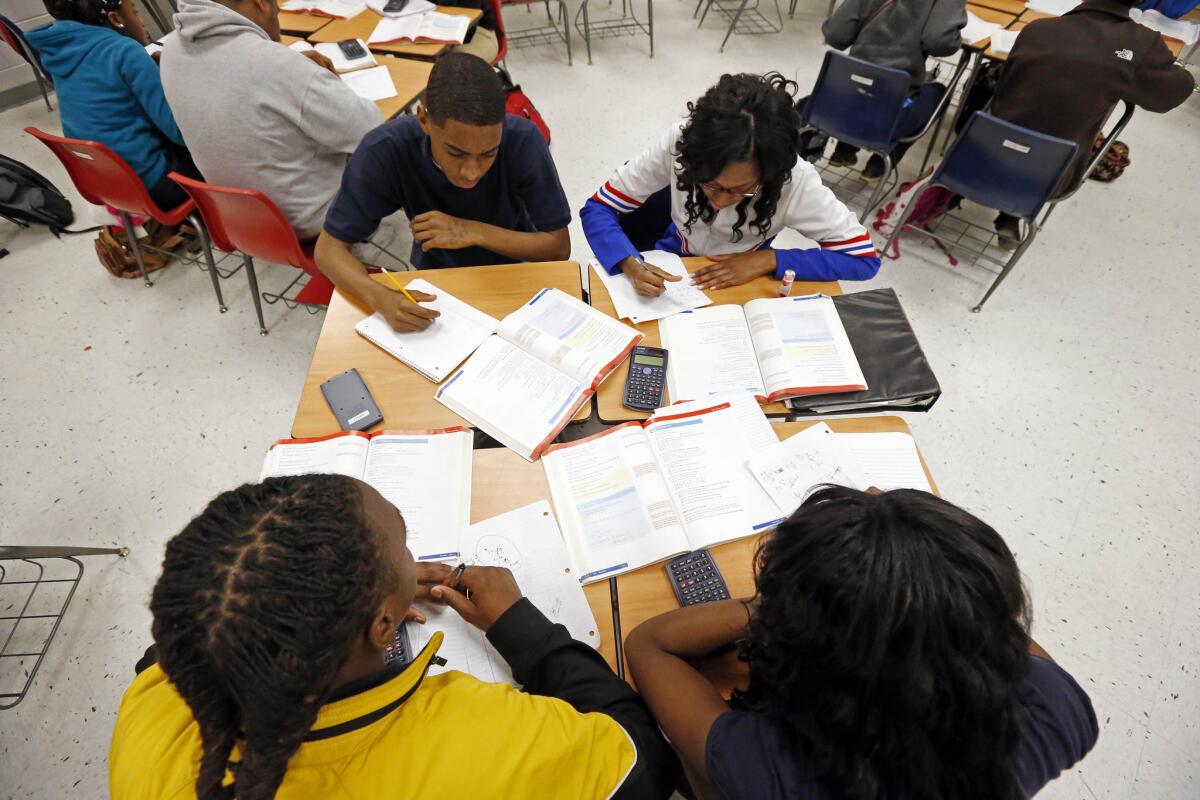A better way to train teachers

- Share via
If America’s medical schools were failing to offer their students the academic content and practical experience necessary to provide high-quality healthcare, we would be outraged.
But that’s exactly what happens in most undergraduate and graduate schools of education. According to a new report from the National Council on Teacher Quality — which was funded by 62 organizations, led by the Carnegie Corp. and the Eli and Edythe Broad Foundation — too few aspiring classroom teachers receive the training and support they need to be effective. And that disconnect has alarming implications not just for them but for the future of K-12 public education.
Eight years in the works, the “Teacher Prep Review” examined admissions standards, course requirements and content, student teaching manuals and graduate surveys for more than 1,100 college and university programs. Together, these programs prepare two-thirds of our nation’s new K-12 teachers, so what they do matters a lot. But fewer than 10% of them earned at least three stars in this report’s four-star rating system. Just four of those are located in California: UC Berkeley, UC San Diego, UC Irvine and the University of Redlands.
This new study shines a critical light on the strongest teacher training programs so that others can learn from their success and model best practices. It also gives aspiring graduate students important information about the programs they are considering — before investing considerable time and tuition — and aids K-12 school districts in their teacher recruitment efforts. The lesson is clear: If we want to improve teacher quality and elevate the status of the profession in a way that reflects how important it is to America’s collective future, we can no longer ignore the way we educate and prepare them.
We know that the highest-performing countries — such as Finland and China — recruit their teacher candidates from the top third of students. Yet here in the United States, only a quarter of teacher training programs restrict admissions to applicants from the top half of their class. Among California’s programs, it’s fewer than 1 in 10.
Sure, raising the bar for admissions is an important first step. But it isn’t nearly enough. Institutions of higher education need to take far more responsibility for the kind of education and practical experience they offer the teacher candidates they admit.
As states begin implementing more rigorous K-12 standards aimed at preparing all students for life after high school, teacher education programs must ensure that their graduates are ready to teach to those higher standards. Yet fewer than 1 in 9 elementary teacher training programs and barely one-third of high school-level training programs are preparing future teachers for this more rigorous content.
Rather than relying on schools of education to deliver on this promise, I would advocate a different approach: Help aspiring teachers develop content expertise by requiring them to study math, science, English and other core subjects for three years, and then provide top performers in each subject area with the training and support they need to learn how to teach the content.
Once they have the content knowledge, however, it is important to hone instructional techniques and gain classroom management experience through a rigorous student teaching experience. Yet 3 out of 4 education schools failed to ensure that student teachers were paired with the kind of highly skilled veterans from whom they can learn best practices.
We would never allow a medical student to perform surgery without participating in a high-quality residency program and studying under the careful eye of an experienced physician. We shouldn’t force new teachers to enter the classroom without the same type of support and training.
Great teachers can make all the difference in how well a student learns. Magic happens in the classroom between amazing educators and their students. That’s where a lifelong love of learning is instilled.
Every student in America deserves to have a great teacher. And that starts with ensuring that all aspiring teachers receive the training and support they need to enter the profession prepared to bring learning to life.
Eli Broad is founder of the Broad Foundations.
More to Read
A cure for the common opinion
Get thought-provoking perspectives with our weekly newsletter.
You may occasionally receive promotional content from the Los Angeles Times.










